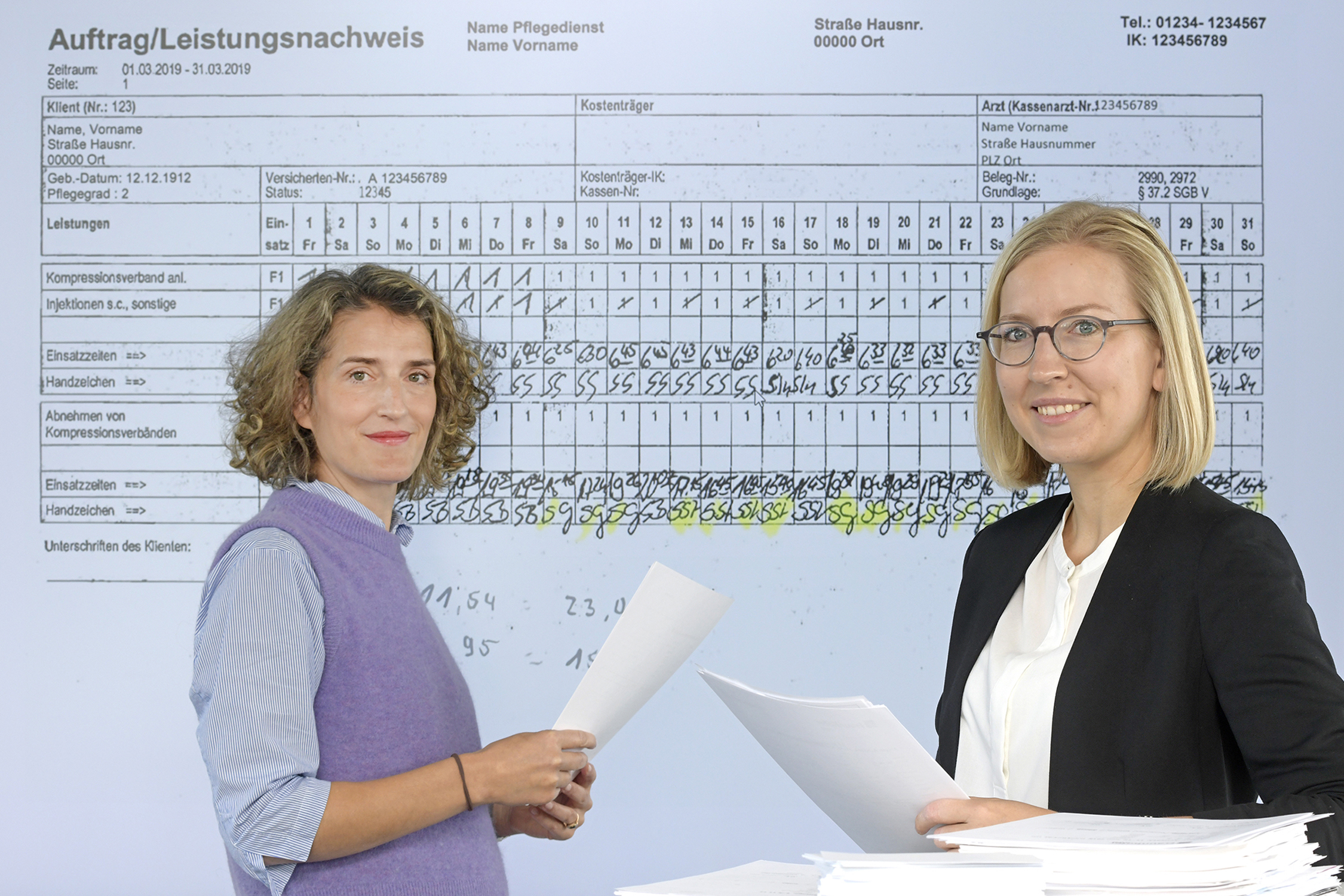Fraud in the billing of care costs causes millions in damages every year. The prosecution of such offenses is lengthy and complicated, as often only handwritten documents are available. In the »PflegeForensik« project, an AI-based demonstrator was developed by our researchers from the departments »Image Processing« and »Financial Mathematics« in cooperation with the Dresden Public Prosecutor General's Office and the Economic Crime Department of the Leipzig Police Directorate. This supports authorities in taking action against billing fraud in the care sector. The work was funded by the Federal Ministry of Education and Research (BMBF).
Using Artificial Intelligence to Combat Billing Fraud in the Care Sector
BMBF Joint Project Pflegeforensik: Software Supports Criminal Prosecution
The precise checking of invoices from care services and contract physicians has so far been very time-consuming, and detecting fraud involves a lot of complex, manual paperwork. At the same time, due to the special situation in nursing care (patients with dementia, many »small« activities), it is difficult to prove a complaint for individual services. In addition, the greater the need for care, the more difficult it is for patients to check the invoices themselves and to report care services that have not been provided or have been provided incorrectly. Furthermore, the lack of transparency in the billing system makes it susceptible to manipulation overall. Many aspects and levels that present challenges and hurdles.
Machine Learning Method Supports Smart Fraud Detection
The joint project »PflegeForensik« with the subtitle »Effective prosecution of care fraud through automated image processing« has taken on these challenges and was funded by the BMBF as part of the »Research for Civil Security« program. In particular, we supported law enforcement with modern artificial intelligence (AI) algorithms in the field of image and text recognition.
The core objective of the project was to develop algorithms for automatically reading and intelligently evaluating the mountains of paper. Until now, every care service has had its own paper documents, which are structured differently and usually have little digital content. Some are handwritten, some are tables, some are continuous text. Automated checking was therefore very complex.
AI Sleuth for Billing in Nursing Care
Machine Learning (ML) methods are used in the developed demonstrator, particularly in the digital capture of the various document types. It works with a combination of image processing methods and modern deep learning methods. Various algorithms learn from a mixture of artificial and anonymized, real data to first recognize crucial information and then detect anomalies. To train these AI algorithms, the Fraunhofer ITWM team and the Leipzig Police Department filled a database. The detection of anomalies is then based on an analysis of the data.
In a demonstrator, the feasibility was tested on both extensive artificial and real data. This demonstrator was presented at the end of the project period in a successful workshop with over 50 representatives of national law enforcement agencies, health insurance companies and federal authorities and met with great interest.
The demonstrator shows how the work of law enforcement agencies can be simplified in the future, but also how it can be used by health and long-term care insurance companies to check billing documents.
Our Cooperation Partners:
[Websites are only available in German]
Project Duration:
The BMBF-funded research project was set up for two years and ran from 01.01.2021 to 30.06.2023. A follow-up project is currently planned in which the demonstrator is to be converted into a prototype.

